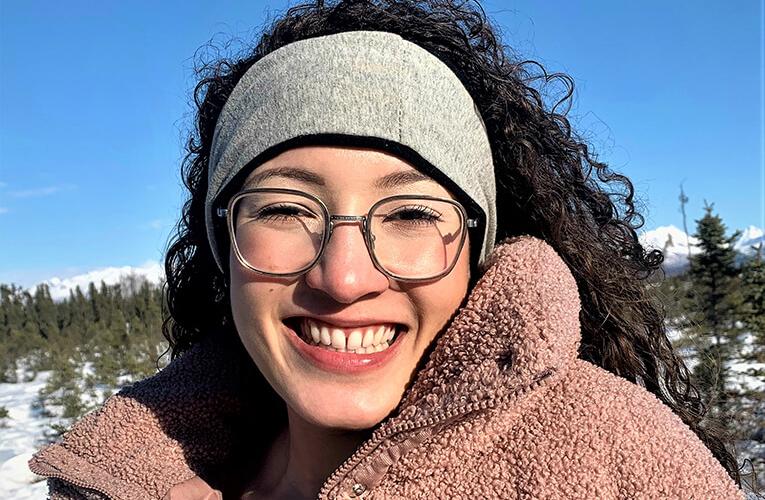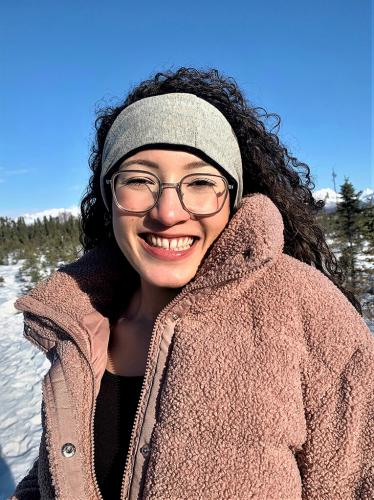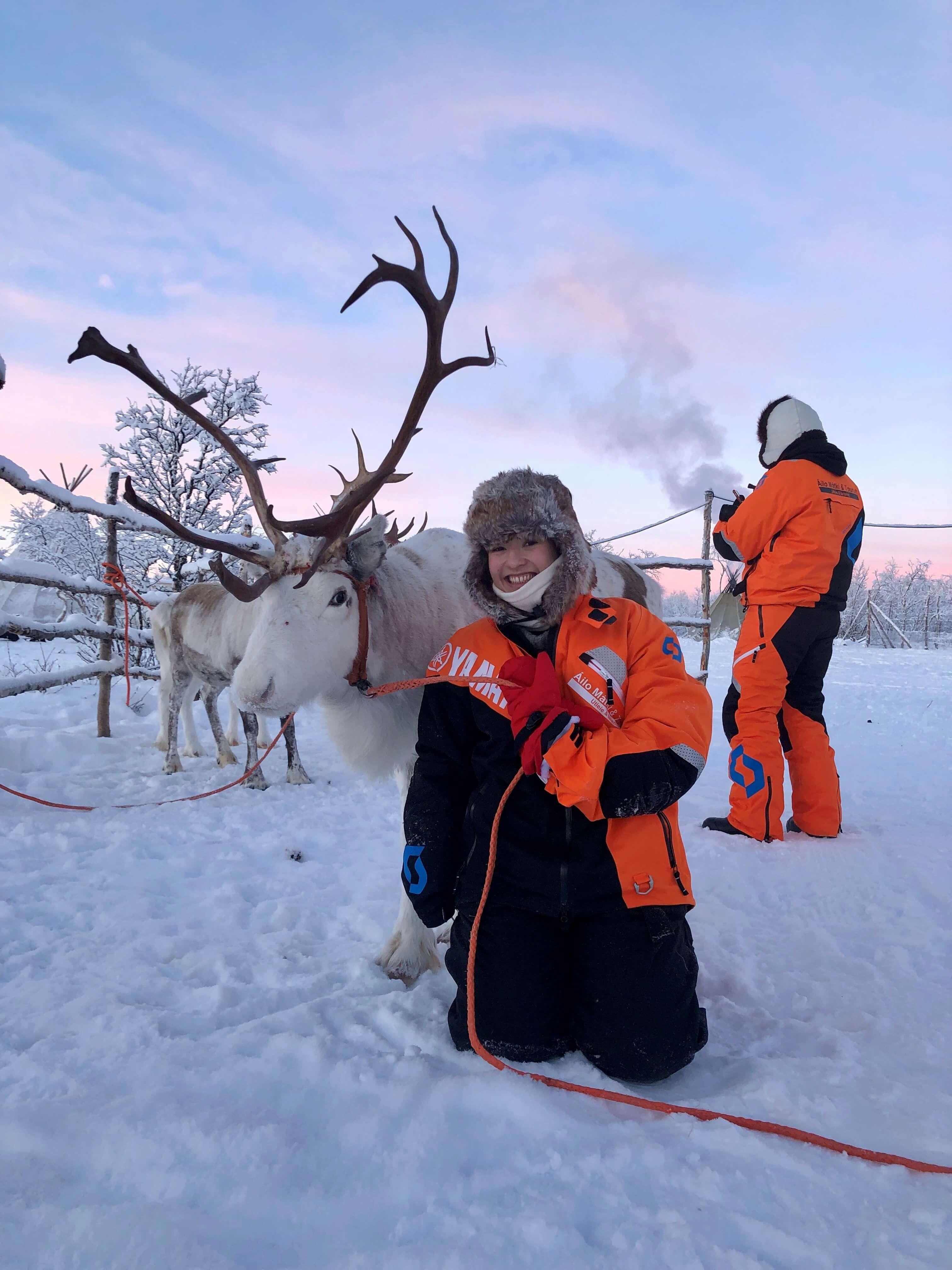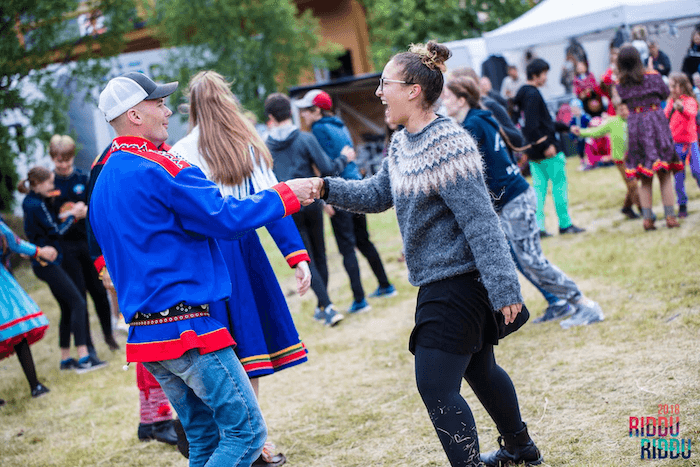By Michaela Stith, T‘18, Environmental Sciences & Policy
By my first birthday, my mixed-race family had already taken me fly fishing on the Russian River and dip netting in the Kenai River of Alaska, the traditional homelands of the Ahtna and Dena’ina people. One morning I sat on the grass outside my parents’ cabin and ogled at the long line of salmon. The reds from the Kenai River were about as long as I was tall: just under two feet.
“Ish!” I shouted. My parents ran over, hugged me, and took turns posing for pictures with their baby and the fresh catch. I was so little when I started fishing that “ish” was my first word.
In Alaska, 95% of rural Alaskan households participate in subsistence fishing. Above the Arctic Circle, the majority of people get half or more than half their food from the communities’ seasonal hunting, fishing and whaling. For example, Iñupiaq Inuit have sustainably eaten whales for 13,800 years on the North Slope of Alaska. Providing food from the land and water is crucial in the Arctic, where many communities lose up to 90% of wage-providing jobs in winter.
These practices—a source of identity as well as food—are threatened by rising seas, warmer summers, shorter winters, and other changes linked to global warming. In the Arctic, the climate is warming at three times the rate of the global average.
In my childhood, you could count on snow to start building on the ground by Halloween. I can only remember one year when there were less than a couple inches. My mom had to design our Halloween costumes to go over snowsuits; I was a very fluffy tiger one year and an engorged pumpkin the next. Yet in 2013, 2016 and 2018 there was no Halloween snow. The winters of my childhood were quickly becoming a relic of the past.
Today, snow starts sticking to the ground a week later than it did in the 1990s, and it melts two weeks earlier. Alaska hits new high temperatures all the time, and scientists expect the Arctic Ocean will have ice-free summers in less than 25 years.
On paths that were previously navigable and stable, experienced hunters fall through dangerously thin ice. The animal migration patterns communities rely upon for hunting have changed as a result of land use and climate change. More than 40 villages in Alaska must soon be relocated due to coastal erosion and storm surges caused by sea-level rise; in extreme cases, homes are already crumbling into rivers and seas.
Reimagining Our World
In conjunction with climate change, Alaskans battle drastic rates of inequality. Tax money from the state’s oil and gas industries, which made up 89% of Alaska’s total tax revenues the year I graduated from high school, overwhelmingly benefit urban centers like Anchorage. Most of our petroleum products are consumed outside the state, often at the expense of rural and Indigenous communities who bear the environmental and social costs associated with the state’s heavily extractive economy.
Alaska has some of the highest per-capita rates of suicide, substance abuse, police brutality, gun deaths, and gender-based and domestic violence in the country, and—damn it all—too many of those trends impacted my own family.
Even as a child, I knew that too many people across Alaska were affected by these systemic problems for it to all be their own fault.
In seventh grade geography, we were assigned to write a travel brochure for any country in the world. I chose to write about Iceland: there had been no murders in the last decades, few people in jail, more examples of gender equality, and full adoption of renewable energy. Iceland’s snow-capped volcanoes and lichen-laden landscapes reminded me of home, even if its social and governing systems seemed a world apart. If equity could be achieved in other parts of the Arctic, I asked, why not at home?
Education has always challenged me to reimagine what our world could look like. While studying environmental science and policy at the Nicholas School, I learned that human activities had created a new era in Earth’s history: the Anthropocene. Industrialization and commercialization had ushered in a new geological age.
One theory dated the dawn of this new age to 1610, when the exchange of plants and animals across the Atlantic, made possible by white supremacists’ slave trade and the seizure of the Americas by European colonialists, forever changed Earth’s geologic history. By using least-cost resources and labor from other continents, today’s global economic systems rely on this inequitable pattern of overextending ecological limits to sustain economic growth.
It became clear to me that racism and environmental change were deeply entwined. Climate change is, first and foremost, a cultural problem embedded in our relationships with land and water.
In the Western mindset, lands perceived as wildernesses are viewed as empty slates waiting to be developed (for oil rigs, wind farms, mines, etc.), conquered (for summiting mountains or claiming property and homesteading) or objectified (for science, scenic beauty, or politics). This worldview distorts reality and distances us from acknowledging or accepting responsibility for the harmful impacts of today’s economies.
As a student at Duke, I was surprised to learn that many people viewed the Arctic in much this way. To them, it was a barren, icy wasteland filled with polar bears and largely devoid of people. Yet more than four million people live in the Arctic. They have homes and use cars, guns and phones. And even if they didn’t, it’s neither acceptable nor accurate to view them as backwards or primitive.
In fact, compared to societies to the south, Indigenous people in the Arctic live far more sustainably. The Intergovernmental Panel on Climate Change says the “tightly coupled relationship of northern local communities and their environment provide an opportunity to better understand climate change and its effects, support adaptation and limit unintended consequences.”
The world has a lot to learn from Arctic peoples about navigating the Anthropocene.
The Power of Connections
After graduating, I accepted a stipend from Duke’s Hart Leadership Fellows program to work at the Arctic Council’s Indigenous Peoples’ Secretariat, located 660 miles above the Arctic Circle in Tromsø, Norway/Romssa, Sápmi.
Founded in 1996 (the same year I was born) the Arctic Council is the leading intergovernmental forum for Arctic states and Indigenous peoples to coordinate on issues of sustainable development and environmental protection in the Arctic. Working there was a revelation.
I rode 4-wheelers with reindeer herds in Guovdageiadnu, Sápmi; climbed tundra-clad mountains on Senja Island; and volunteered as a security guard at music festivals. I sat around the table with foreign ministers and secretaries of state from the eight Arctic countries, and proofread the 6th Arctic Leaders’ Summit Declaration, which highlighted Indigenous peoples’ visions for the future. By the end of the fellowship, I had traveled to every Arctic nation.
My goal was to be useful to Indigenous leaders as they influenced environmental policy and research across the larger Arctic. Even though this work was based in the Arctic, I knew it would ultimately benefit us all because, while Indigenous people make up only 5% of the world’s population, they protect 80% of its biodiversity.
One of the key lessons I learned from my work at the Arctic Council—and that I try to apply every day in my job at the Wilson Center’s Polar Institute—is the power of connections. Systemic racism has severed many Black and Indigenous peoples’ intergenerational connection to their lands, their food and their communities, ultimately robbing them of their independence.
This is not an isolated problem. I found it to be true in more progressive and equitable places like Norway and Iceland just as I had back home in Alaska. Across the globe, Black and Indigenous peoples are still not adequately represented in decision-making bodies, nor provided rightful determination over their land and resources.
As we work to solve the inextricably entwined challenges of climate change, institutionalized racism and economic injustice, it’s important to recognize that technical solutions and political reforms will only get us so far.
New energy projects, however green, perpetuate Western cultural norms about consumption when marginalized peoples have little voice in these projects’ development. Federal environmental policies and reforms are made by people who don’t live a traditional way of life, and they often end up hurting, rather than helping, people who do live intimately with the environment.
Equity must be accomplished on a cultural level, beyond political mandates and reforms. Culturally ingrained beliefs about human dominion over the environment and Western dominion over non-Western cultures are what created climate change, biodiversity loss, mass incarceration, and police brutality in the first place. These knowledge systems are not enough to make the world a better place.
It will take a more diverse set of worldviews to fashion a sustainable and just world. Black and Indigenous peoples have the knowledge to lead the way.



